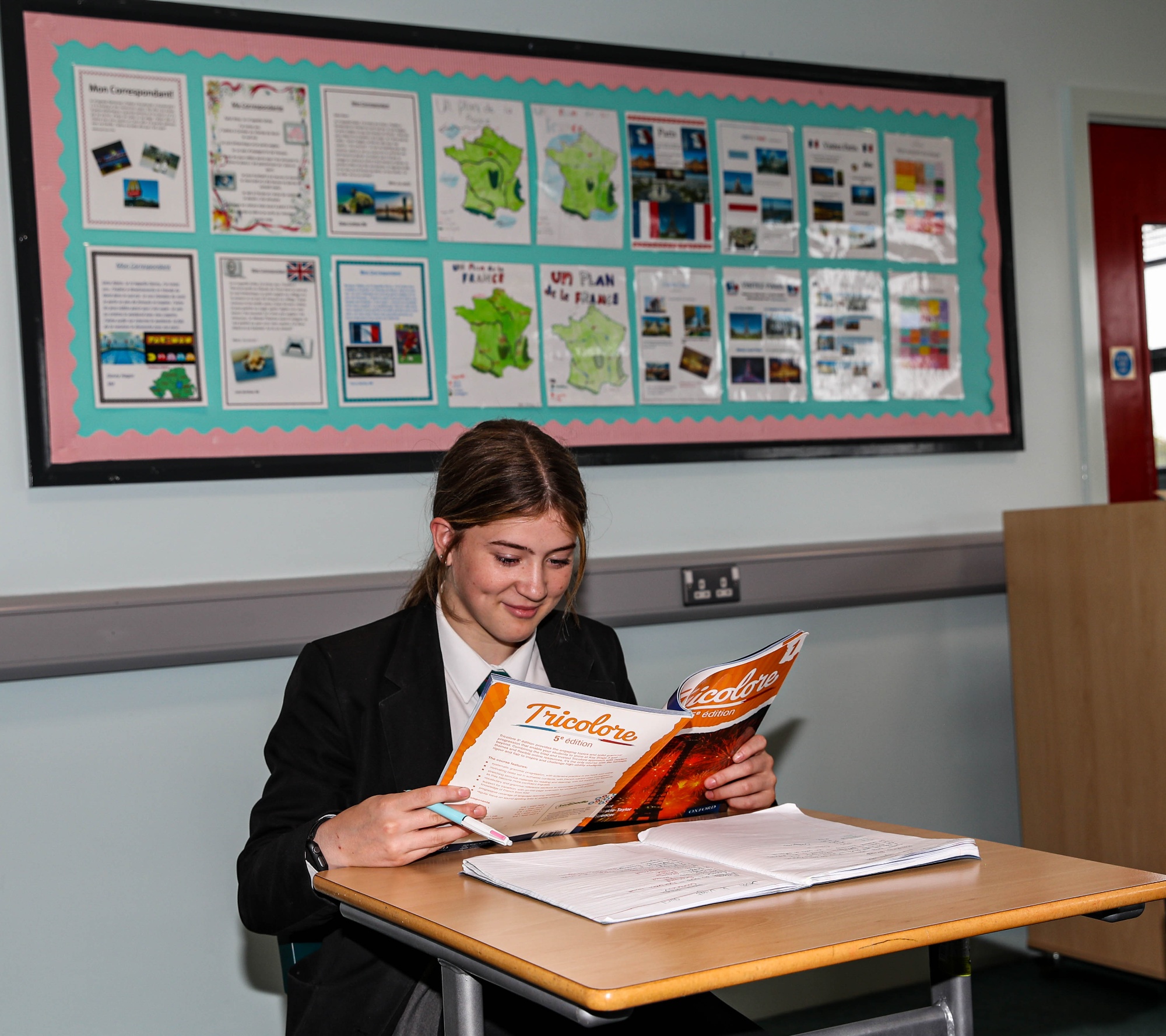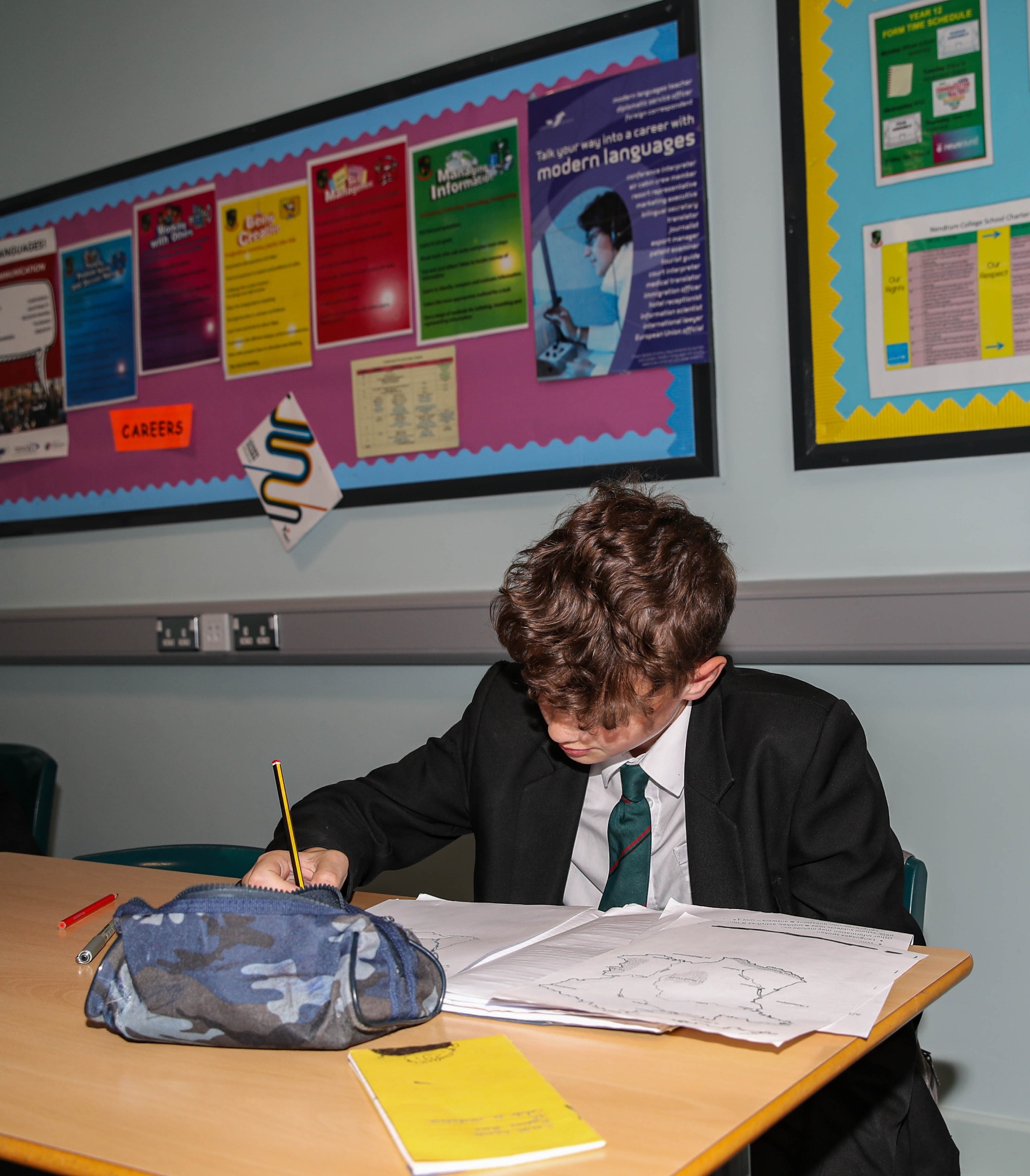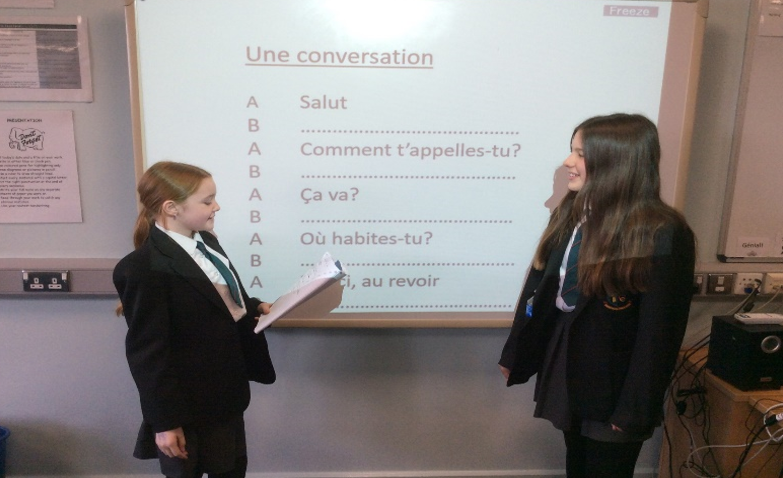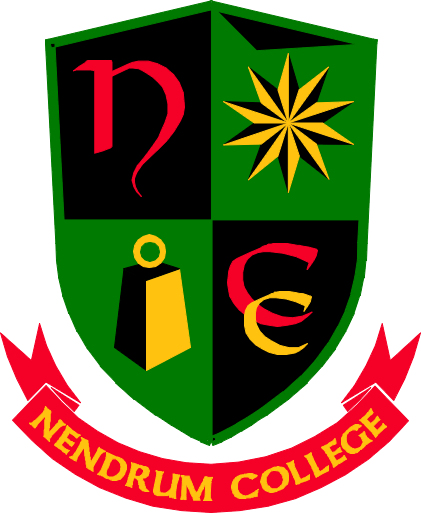French
Staff
| Head of Department | Subject Teacher |
| Mrs Munn | Miss Miller |
Key Stage 3
| Year 8 | Year 9 | Year 10 |
|
-School life -Greetings -Self, family and pets -House and home |
-Going places -My town -Leisure activities -Daily Routine -Countries, languages, nationalities |
-Weather and Seasons -Transport -Food and Drink -Holidays |
In the first three years at Nendrum College pupils will receive three periods each week (1 hour 45 minutes). Pupils can then opt to study French at GCSE level.
Key Stage 4
| Unit 1: | Listening - Understand spoken Language | 25% |
| Unit 2: | Speaking - Communicate in Speech | 25% |
| Unit 3: | Reading - Understand Written Language | 25% |
| Unit 4: | Writing - Communicate in Writing | 25% |
At KS4 our pupils follow the AQA GCSE French Specification. Pupils will develop considerable skills in listening, speaking, reading and writing – building on the knowledge and understanding gained at Key Stage 3. The course is designed to provide enjoyment, offering pupils a variety of language resources and learning experiences. The course provides an insight into the culture and civilisation of France and French speaking countries, aiming to provide a better understanding of the target language country. The benefits of learning a foreign language are very evident; it increases mobility within Europe and the wider world making travel easier and it also helps to make friends and connections in other countries. Learning a language will equip pupils with communication, listening and thinking skills needed to enter the job market, thus enhancing job prospects and earning potential. If you enjoy communicating with other people, finding out how language works and learning about different countries and cultures, GCSE French is an excellent choice for you. You will learn many skills which are useful in a wide range of career paths. Many employers and higher education providers seek people who speak a foreign language. GCSE French builds on what you have already learnt at KS3, classes are still enjoyable and interactive but topics are covered in more detail.







